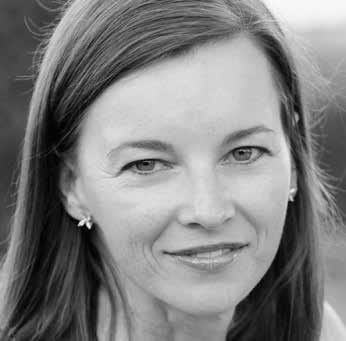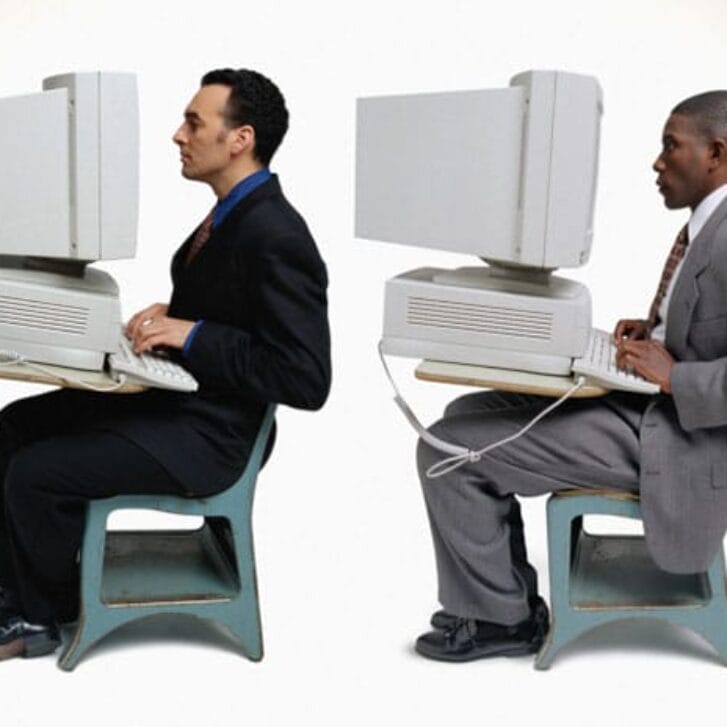Now an MBA for Executives student at Wharton | San Francisco, Lindsay Beck had been diagnosed with a rare tongue cancer when she was 22. When the malignancy recurred and she inadvertently discovered her chemotherapy could leave her sterile, she launched into an advocacy campaign that changed the face of American medicine. Through her charity, Fertile Hope (now part of the LIVESTRONG Foundation), she co-wrote the oncology treatment guidelines to protect the reproductive rights of young patients like herself. She then lobbied among the massive health insurers and countless self-insured employers to help fund the care.
WHARTON MAGAZINE: You were fighting cancer for the second time. How did you have the strength to start a nonprofit back then?
LINDSAY BECK: I was fueled by anger and passion. I found it outrageous that in America at the time people were being sterilized without their knowledge and permission and that the solutions to that problem already existed—many times within the same hospital—and weren’t being utilized. I also felt survivor’s guilt and the obligation of the cured. I got lucky—I survived, uncovered my fertility risks and froze my eggs. I wanted to pay that good fortune forward and couldn’t sleep at night knowing that others were forgoing their ability to have children in the name of survival when they didn’t have to. It was wrong and I was determined to fix it.
WM: How were you able to launch Fertile Hope so quickly?
BECK: My life has been very serendipitous. Prior to starting Fertile Hope, I was a very early, junior employee at a dot-com in San Francisco. Because the team was so small, I got to watch and participate in the processes of identifying a problem, writing a business plan, raising millions of dollars from Silicon Valley VCs, spending the money and, ultimately, going bankrupt. So then, when my diagnosis occurred, the process of starting a company seemed less daunting to me. Here’s the problem, here’s the solution, here’s the business model, here’s how we’ll raise the money, here’s how we’ll spend it. And so, in life’s weird way, I had a crash course in entrepreneurship a year before all of this happened, and I knew how to break down a big goal into baby steps and start walking.
WM: If you had to narrow it down to one thing that’s led to your success, what would that be?
BECK: I think the key to Fertile Hope’s success and my success today has been the ability to look at every situation from the outside in. For example: What does a patient need, and how can we deliver that? What do the doctors need, and how can we deliver that? What do the insurance companies need? What’s in it for them? I started this seeking to change the way oncology is practiced in America, but I was only able to achieve that because I looked at it from each of my stakeholders’ point of view and was able to quickly show them what’s in it for them.
WM: What about innate qualities?
BECK: To start Fertile Hope, I had a bold vision and a stubborn persistence to not give up. Whether you’re in the nonprofit space or the for-profit space, there are a million reasons to give up as an entrepreneur and you can’t. I hate being told no, to lose and to fail, and the motivation and work ethic resulting from those innate qualities (or flaws) proved to be invaluable.
WM: You’ve succeeded in getting a guideline passed for how patients must be treated. You’ve gotten buy-in from insurers and self-funding employers. Have you achieved your goals?
BECK: I started Fertile Hope with the goal of putting the organization out of business. I wanted to succeed myself out of a job, and I wanted to do that by solving the problem. I feel like I have done that to the extent I can.
WM: So do you have the next problem picked out?
BECK: Yes and no. I think that’s why I’m at Wharton … to have two years for that self-exploration.
WM: Can you share any details?
BECK: Namely, I would say that being at Wharton has shown me that the nonprofit capital market is inefficient, that the way nonprofits raise money, that the way capital flows to nonprofits, that the way nonprofits are measured and judged, and therefore get donations, is inefficient. It’s such a nascent industry that people call it all sorts of things, but I definitely have an eye toward getting involved with social finance innovations such as impact investing, pay-for-performance vehicles and social impact bonds.
WM: Where would you be now if at 22 you didn’t get cancer?
BECK: I don’t know where I would be, but I know my life wouldn’t be as wonderful as it is today for a number of reasons. I definitely see cancer as one of the best things that ever happened to me. I know that sounds silly and to some people it sounds cliché, but I feel very lucky to have been given that wake-up call at such a young age. A lot of people when they’re older say things like, “I wish I knew then what I know now.” I was given that gift when I faced death at 22, and those lessons have enhanced every aspect of my life, personally and professionally.
WM: Wharton lecturer and former health care executive Paul King called you the next Dr. Mehmet Oz, M’86, WG’86? What do you think?
BECK: Those are big shoes to fill, and I am flattered by the association. I would say that I admire the way in which Dr. Oz has used his passion to help have a positive impact on millions of people’s lives, and I hope that my work to date has laid the foundation for me to be able to do the same. Having a positive social impact is an important part of the legacy that I want to leave.
Read about the four other Whartonites “Putting Knowledge Into Action.”
























